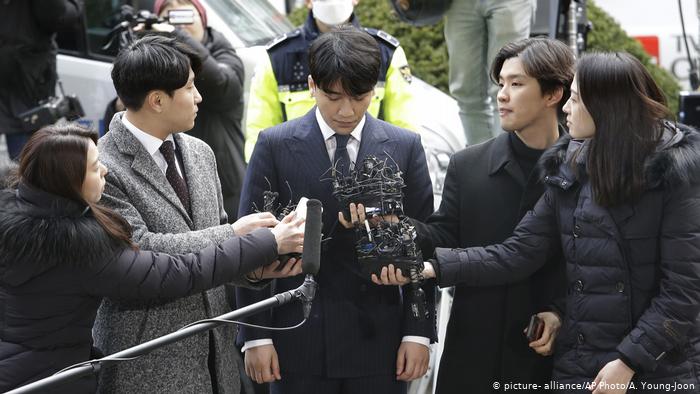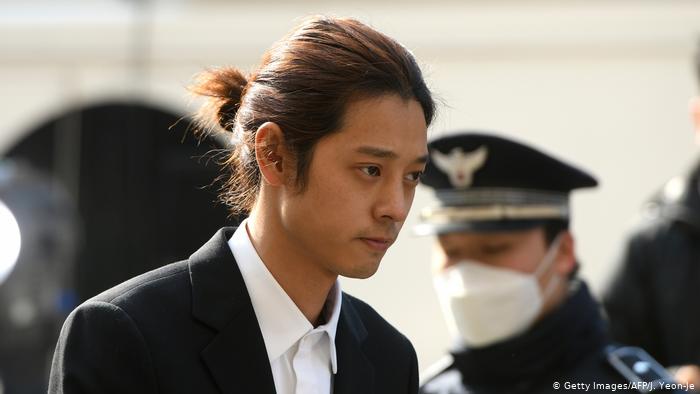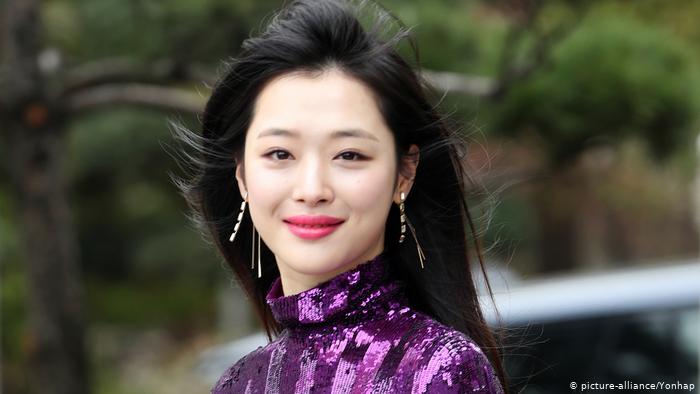Netflix movie about K-pop band Blackpink takes the world by storm – DW (English)

Blackpink is South Korea’s most successful girl band. A Netflix documentary tells their story but ignores the dark sides of the K-pop scene.
“Blackpink: Light Up the Sky” is a Netflix production about the extremely successful girl band from South Korea that has skyrocketed to fame in recent years.
Blackpink’s most recent YouTube clips have been clicked by more than 500 million fans. The K-pop, or Korean pop, band has just set a new sales record with “The Album.”
The band is scheduled to perform on popular US late night shows — such as James Corden and Stephen Colbert — and will be the first South Korean band ever on stage at the California Coachella Festival.
Raw talent from South Korea
Blackpink perform in Korean and English, with a bit of rap sprinkled in for good measure. The four girls deliver sophisticated choreographies to perfectly produced beats, which in the long run might be seen as somewhat monotonous. But the formula works, and their music sells.
Jennie, Lisa, Jisoo and Rose all have solid voices and are all musically trained: they all play instruments, which, however, are not heard in their hit songs. Their whole act is based on an extremely tough training program with other young girls — a time the Netflix film only addresses in passing:
In the years leading up to the band’s 2016 launch, the YG entertainment company had dozens of girls spend 14 hours in training every day with an eye on putting together this new girl band.
Those sessions were brutal — as if they were headed for the Olympic Games. But at the same time, this disciplined work ethic is part of what makes K-pop so popular: the audience pays to see perfection.
Over the past few years, Blackpink changed its squeaky-clean image gradually to a more sexy look than this 2017 picture
Tough selection process
The documentary focuses on the four young women aged between 23 and 25 who emerged as the winners of the lengthy YG program.
The film, however, does not look at the many contenders who did not make it in; teenagers who flocked to the academies hoping for national and global fame after dropping out of school and leaving friends and families behind to live their dream.
But dozens of such young people fall by the wayside each year because they are deemed not talented or disciplined enough, and are then marked with the stigma of failure.
No tattoos, no partners
The Netflix documentary stays somewhat on the surface, perhaps because Netflix has business ties to YG Entertainment. The dark side of life on the road to success does not fit the squeaky-clean image the young K-pop stars radiate: no scandals, no alcohol, no cigarettes, no tattoos, and endless, competitive rehearsals as the prize for fame.
Sandara Park of 2NE1, a K-pop band that no longer exists today, said in a recent interview that YG Entertainment imposed a five-year dating ban on her after she finally made it into the band following years of tough training.
Similar rules are thought to apply to the young members of Blackpink, which gives their current hit single “Lovesick Girls” a whole new meaning.
Read more: K-pop’s dark and tragic underbelly
Becoming a global brand
From practice sessions to the finished product, everything is completely orchestrated in K-pop, which plays a huge role in its success.
In 2016, the newly founded girl band shyly presented itself to the South Korean press for the first time. Four years later, the four young women have completed a world tour, have recorded a song with Lady Gaga (“Sour Candy”) and have released their second album featuring guest appearances by Selena Gomez and Cardi B.
The four K-pop girls are influencers, too: they show up in Samsung ads and are brand ambassadors for popular fashion labels.
Dark clouds hanging over K-pop
K-pop is not exactly a new phenomenon; it was first created about two decades ago, and made waves around the world in 2012 with the South Korean singer Psy’s hit song “Gangnam Style.”
The video was the most viewed video in the history of YouTube.
While Psy’s fame since has faded, Blackpink is only just getting started on their global career. Singer Psy represented a fun gateway to the K-pop phenomenon, but then, as is now, focusing on fun is certainly the exception and not the rule in the competitive world of K-pop.
Artists like Blackpink are not supposed to leave the beaten K-pop track; they are meant to be shining celebrities, and appear pristine in every way. That’s what the fans pay for after all.
Should they break the mold and express an opinion that does not meet the high moral expectations in South Korea, they face bullying on social networks.
This is why they often end up keeping rather mum to avoid controversy and contentious issues — a strategy that has apparently worked for years but has also made for some surprising moments in the K-pop music industry:
When the BTS K-pop boy group expressed its firm solidarity with the Black Lives Matter movement — along with a $1 million (€ 853,000) donation — the South Korean media did not know how to even broach the subject in its coverage at first.
Tears of joy on stage?
The strain of constantly having to be perfect has proven to be too much for some K-pop artists, as several have committed suicide in recent years. YG Entertainment may demand perfection from its artists, but the company itself made headlines last year with scandals concerning prostitution and sex videos.
The dark underbelly of the K-pop phenomenon therefore deserves to be explored much deeper. “Blackpink: Light Up the Sky,” however, does that quite measure up to that: it is more of a long music video than a revealing documentary, garnished with harmless interview sequences and studio recordings. It is unclear whether the girls have become actual friends or are just business partners.
Are they happy? As the last show of the world tour came to an end, Rose told the audience that the girls missed out on a lot to pursue their career, and that they are a long away from home — and then she started to cry.
“Tears of joy!” the other three girls immediately interfered.
Deutsche Welle reports cautiously on the subject of suicide because there are indications that some forms of media coverage can have a copycat effect. If you have suicidal thoughts or feel distressed, do not hesitate to seek help. You can find out where help is available in your country by visiting the website https://www.befrienders.org/. In Germany, call the toll-free numbers 0800/111 0 111 and 0800/111 0 222 to get in touch with the Telefonseelsorge crisis helpline.
This article was adapted from the German original by Dagmar Breitenbach.








